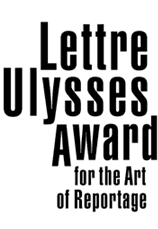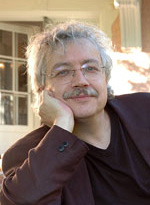
Karl-Markus Gauß, Austria
 Writer, Essayist, Journalist * 1954
Writer, Essayist, Journalist * 1954
Die Hundeesser von Svinia
“There are two dangers when writing about the Roma: One is the kitsch approach, of presenting the Roma as a poor but happy and singing people. The other is what I would describe as black kitsch, which only perceives the Roma as victims who are pushed to the margins of society. To do so is to no longer consider the Roma as people, but as nothing more than victims. I tried to avoid both approaches.”
Karl-Markus Gauß was born in Salzburg, Austria. He studied History and Germanic studies and then worked as a freelance critic and writer. In 1991 he became publisher and editor-in-chief of the Austrian literary magazine Literatur und Kritik.
Gauß has written extensively on Central and Eastern Europe’s minorities and ethnic groups, such as the Sephardim in Bosnia-Herzegovina, the Albanian-speaking Arbereshe in Italy, the Slavonic Sorbs in Germany, the Aromanians in the Balkans, the Ruthenians in Belarus and Ukraine, and the Roma of Central and Eastern Europe. His works include Die Vernichtung Mitteleuropas (1991), Der Mann, der ins Gefrierfach wollte (1999) and Die sterbenden Europäer (2001). His latest work is Die versprengten Deutschen (2005). His writing has been translated into more than 14 languages.
In his book, Die Hundeesser von Svinia [The Dog Eaters of Svinia] (2005) Gauß examines the plight of the Roma people of Eastern Slovakia, on the very edge of the new Europe. He immerses himself in the life of the Roma who, with their history of displacement, persecution and contempt are amongst the very poorest people in Europe. Their everyday life is marked by loss of identity, poverty and disorientation. He visits the town of Svinia, where the Degesi, or dog eaters, live. These people are marginalized and despised even by their fellow Roma, they are the ultimate pariahs, the lowest of all castes.
Gauss has received several awards for his work, including the Austrian National Prize for Cultural Journalism (1994), the Charles Veillon European Essay Prize (1997), the Australian Booksellers Honorary Prize for Tolerance (2001), the Vilenica Prize for Central European Literature (2005), and the Manès Sperber Prize (2006).He regularly contributes to Die Zeit, Frankfurter Allgemeine Zeitung, Neue Zürcher Zeitung and Die Presse.
Gauß lives in Salzburg with his wife and two children.
